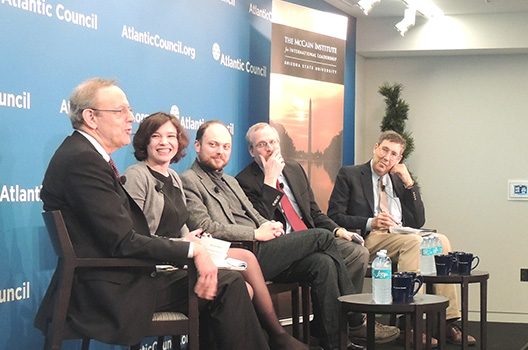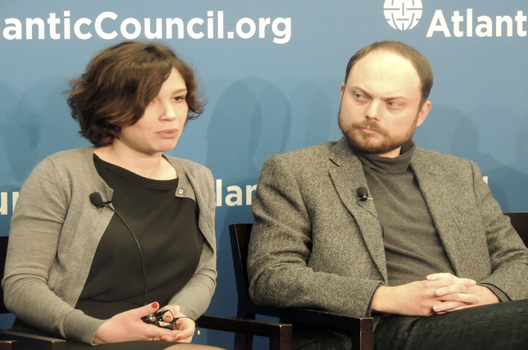 One year after the public assassination of Russian opposition leader Boris Nemtsov, the head of Russia’s Investigative Committee, General Alexander Bastrykin, has announced that the case has been “solved.” However, the legitimacy of the investigation is questionable as the Investigative Committee has refused to qualify Nemtsov’s murder under Article 277 of the Criminal Code as “an attempt on the life of a public statesman.” Additionally, neither the organizers, nor the masterminds, of the most high-profile political assassination in Russia’s modern history have been named. As prosecutors prepare for a trial at the Moscow District Military Court, only the alleged perpetrators have been arrested, and despite the obvious links between the gunmen and Ramzan Kadyrov, the Kremlin-appointed Chechen leader has not been formally questioned in this case.
One year after the public assassination of Russian opposition leader Boris Nemtsov, the head of Russia’s Investigative Committee, General Alexander Bastrykin, has announced that the case has been “solved.” However, the legitimacy of the investigation is questionable as the Investigative Committee has refused to qualify Nemtsov’s murder under Article 277 of the Criminal Code as “an attempt on the life of a public statesman.” Additionally, neither the organizers, nor the masterminds, of the most high-profile political assassination in Russia’s modern history have been named. As prosecutors prepare for a trial at the Moscow District Military Court, only the alleged perpetrators have been arrested, and despite the obvious links between the gunmen and Ramzan Kadyrov, the Kremlin-appointed Chechen leader has not been formally questioned in this case.
It is this suspect “justice” which a panel, including Russian politician and activist, Vladimir Kara-Murza and Boris Nemtsov’s daughter, Zhanna Nemtsova, examined at an Atlantic Council event hosted by the Dinu Patriciu Eurasia Center, the National Endowment for Democracy, The McCain Institute for International Leadership, and the Institute of Modern Russia, on April 1, 2016.
The panel made a persuasive argument for the need for international oversight of the investigation, the need for which is meaningfully depicted in Mr. Kara-Murza’s statement:
“I do not believe that the assassination of the opposition leader in front of the Kremlin could have been some kind of independent act without coordination from Moscow. This is my opinion: It is not possible. The current regime…does not allow for such “independent acts,” not on this level, not in such a place.”

Given the Russian authorities’ inability or unwillingness to pursue the investigation impartially and without political constraints, international oversight is crucial. The Parliamentary Assembly of the Council of Europe and the European Parliament launched projects aimed at bringing the investigation into the spotlight. In the United States, the Senate Foreign Relations Committee recently marked up Senate Resolution 378, which “urges the United States Government, in official contacts with representatives of the Russian Government, to emphasize the importance of bringing to justice all of the conspirators in the murder of Boris Yefimovich Nemtsov.”
The panel featured, Zhanna Nemtsova, Daughter of Boris Nemtsov and Founder and President of the Boris Nemtsov Foundation for Freedom, Vladimir Kara-Murza, Longtime Colleague and Friend of Boris Nemtsov and Deputy Leader of the People’s Freedom Party, David Kramer, Senior Director for Human Rights and Democracy at The McCain Institute for International Leadership, and John Herbst, Director of the Atlantic Council’s Dinu Patriciu Eurasia Center. Carl Gershman, President of the National Endowment for Democracy, introduced and moderated the event.
View the webcast below:
